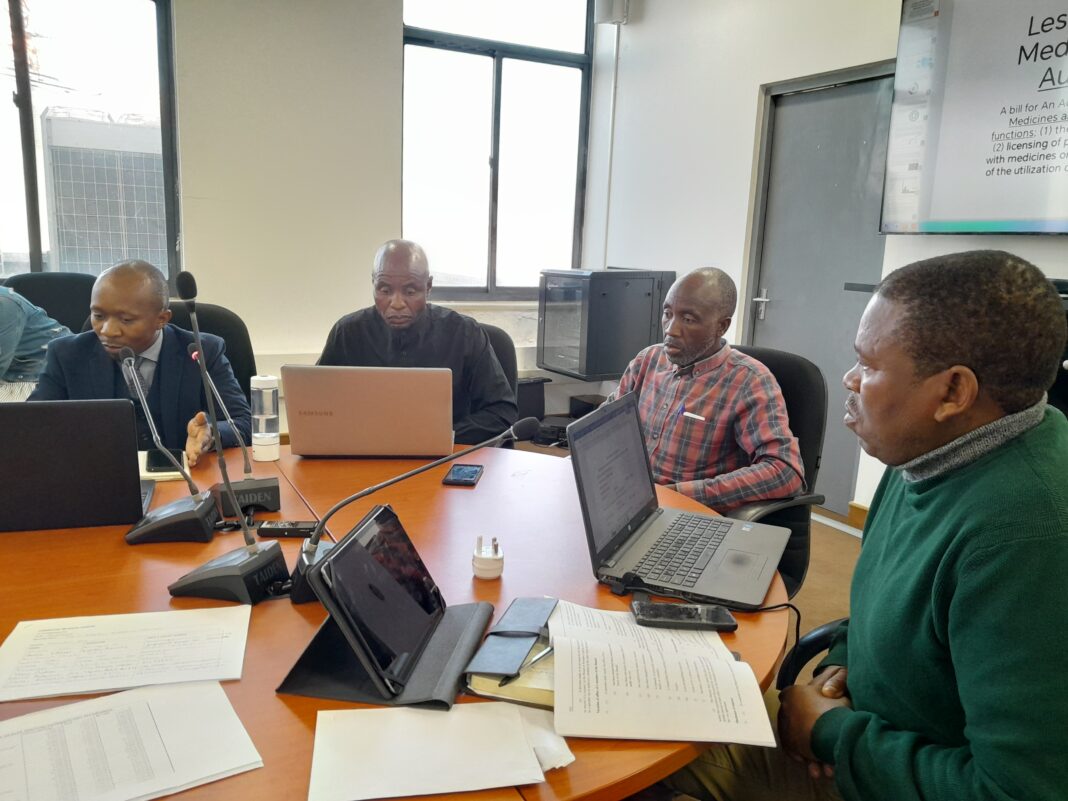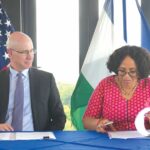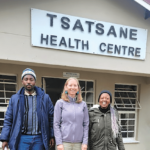Ntsoaki Motaung
The Ministry of Health, represented by the Director of the Legal Office, ‘Masello Sello, has admitted to an oversight in the development of the recently gazetted Medicines and Medical Devices Control Authority Act of 2023.
During a meeting with the portfolio committee on the social cluster and alternative medicines stakeholders, Sello acknowledged that the act excluded representation from the naturopathy sector on the Board of the Authority, which was a mistake.
Sello assured the committee that the ministry recognises the oversight and is committed to rectifying it in collaboration with all stakeholders involved.
She also mentioned that petitioning bodies expressed concerns about the definition of medicines, which currently covers both Western medicine and naturopathy.
However, naturopathy was not consulted during the formulation of the law.
Sello explained†“Section 59 of the act provides that the minister will have to establish specific regulations, tailored to different types of medicines including Western medicine and complementary or natural medicines. This means that all stakeholders, including the naturopathy sector, will be consulted to voice their opinions.â€
To address the concerns raised, the director explained, the Ministry of Health has agreed to arrange a meeting with all stakeholders within three weeks.
This meeting will allow stakeholders to identify sections of the law they are unhappy with and provide recommendations for addressing their concerns. Following this, the ministry will initiate the necessary preparations to amend the law to incorporate the opinions of all affected stakeholders.
During the meeting, the Chairman of the portfolio committee on the social cluster, Member of Parliament (MP) Mokhuthu Makhalanyane, informed representatives from the naturopathy industry that they have two options if they are dissatisfied with the enacted law.
They can engage in discussions with the relevant ministry to propose amendments, or they can challenge the law in court. However, Makhalanyane advised that it would be preferable to resolve the issue outside of court.
Makhalanyane emphasised the importance of including traditional doctors and protecting those who believe in traditional healing methods. He warned that failure to do so could lead to individuals being in violation of the law if found in possession of traditional herbs.
Meanwhile, TÅ¡epo Mahabane Masiu from the Nature-Heals Association raised concerns regarding Section 44 (2) (a) and (b) of the enacted law, which does not include individual citizens’ voluntary informed consent to clinical trials.
Masiu emphasized the need for full disclosure of any side effects and voluntary consent for any medicine administered to Mosotho citizens, as it is a matter of freedom of conscience and the right to choose.
Dr Lithathane Nkhasi from the Association of Natural Interventions Lesotho (ANIL) expressed concern over the exclusion of natural medicine practitioners from the board.
Nkhasi argued that the law’s definition of medicine goes beyond patented drugs to include natural God-given medicines, which have been used long before the Pharmaceutical Industry’s existence.
He stressed that the pharmaceutical industry lacks the necessary understanding and expertise to unilaterally regulate natural medicine.
Summary
- The Ministry of Health, represented by the Director of the Legal Office, ‘Masello Sello, has admitted to an oversight in the development of the recently gazetted Medicines and Medical Devices Control Authority Act of 2023.
- During a meeting with the portfolio committee on the social cluster and alternative medicines stakeholders, Sello acknowledged that the act excluded representation from the naturopathy sector on the Board of the Authority, which was a mistake.
- Masiu emphasized the need for full disclosure of any side effects and voluntary consent for any medicine administered to Mosotho citizens, as it is a matter of freedom of conscience and the right to choose.

Your Trusted Source for News and Insights in Lesotho!
At Newsday Media, we are passionate about delivering accurate, timely, and engaging news and multimedia content to our diverse audience. Founded with the vision of revolutionizing the media landscape in Lesotho, we have grown into a leading hybrid media company that blends traditional journalism with innovative digital platforms.








